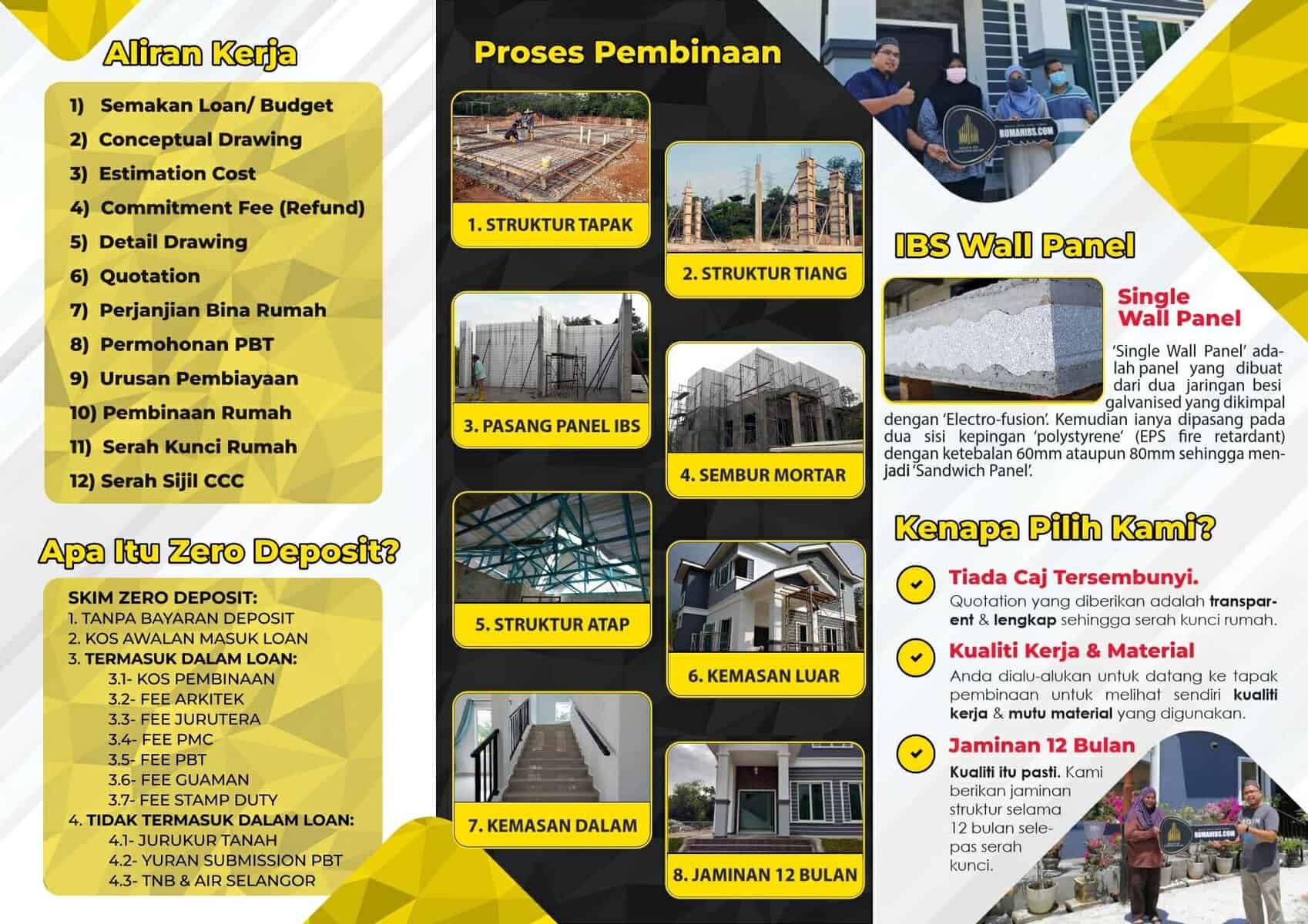
Blog
Achieving IBS Construction Certification in Malaysia


Achieving IBS Construction Certification in Malaysia
Table of Contents
- Introduction to IBS Construction
- Benefits of IBS Construction
- Importance of IBS Construction Certification
- Requirements for IBS Construction Certification
- Steps to Obtain IBS Construction Certification
- Training and Education for IBS Construction
- Challenges and Opportunities in IBS Construction
- Case Studies of Successful IBS Construction Projects
- Future Trends in IBS Construction
- Conclusion
- FAQs (Frequently Asked Questions)
Introduction to IBS Construction
The construction industry in Malaysia has witnessed significant advancements in recent years, with the adoption of Industrialized Building System (IBS) construction. IBS construction involves the use of pre-fabricated components and off-site manufacturing, resulting in improved efficiency, enhanced quality, and reduced construction time. In this article, we will explore the process of achieving IBS construction certification in Malaysia, outlining its benefits, requirements, and the steps involved.
Benefits of IBS Construction
IBS construction offers numerous benefits that have contributed to its growing popularity in Malaysia’s construction industry. Some of the key advantages include:
- Faster Construction: By utilizing pre-fabricated components, IBS construction significantly reduces construction time, allowing for quicker project completion.
- Enhanced Quality Control: The manufacturing of components in a controlled environment ensures high-quality standards and minimizes defects during construction.
- Cost Savings: Despite initial investment costs, IBS construction offers long-term savings through reduced labor requirements, decreased material waste, and shorter construction periods.
- Improved Safety: IBS construction minimizes risks associated with on-site construction activities, leading to safer working conditions.
- Sustainable Practices: IBS construction promotes sustainable development by minimizing construction waste, optimizing resource utilization, and incorporating eco-friendly designs.
Importance of IBS Construction Certification
Obtaining IBS construction certification in Malaysia is crucial for construction professionals and organizations looking to showcase their expertise in implementing IBS projects. Certification demonstrates adherence to industry standards and best practices, fostering confidence and trust among stakeholders. By achieving certification, individuals and companies can position themselves as qualified and reliable contributors to Malaysia’s construction industry.
Requirements for IBS Construction Certification
To obtain IBS construction certification, individuals must meet specific requirements, which may vary depending on the certification body or organization. Some common prerequisites include:
- Experience and Qualifications: Candidates should have relevant experience in the construction industry, particularly in IBS projects. Possessing the necessary educational qualifications and technical expertise related to IBS construction is also essential.
- Training and Professional Development: Completion of specific training programs and courses focused on IBS construction is often mandatory for certification. These programs equip candidates with the knowledge and skills required to implement IBS projects effectively.
- Project Portfolio: Certification bodies may request a portfolio of past IBS construction projects as evidence of practical experience and the ability to implement IBS construction methods.
Steps to Obtain IBS Construction Certification
The process of obtaining IBS construction certification typically involves the following steps:
- Research Certification Bodies: Identify recognized certification bodies or organizations that offer IBS construction certification in Malaysia. Research their eligibility criteria, certification processes, and associated fees.
- Meeting Requirements: Ensure that all prerequisites for certification, including experience, qualifications, training, and project portfolio, are fulfilled.
- Application Submission: Complete the application form provided by the certification body and submit the required documents, such as educational certificates, training certificates, and the project portfolio.
- Review and Assessment: The certification body will review the application and assess the candidate’s qualifications, experience, and project portfolio. This evaluation may involve interviews, site visits, or written examinations.
- Certification Decision: Upon successful evaluation, the certification body will make a decision regarding the candidate’s certification. If approved, the candidate will be awarded the IBS construction certification.
- Certification Maintenance: IBS construction certification is typically valid for a specific period. To maintain certification, individuals may be required to participate in continuous professional development activities or renew their certification periodically.
Training and Education for IBS Construction
To enhance knowledge and skills in IBS construction, various training and education programs are available in Malaysia. These programs cover topics such as IBS design, manufacturing, installation, project management, and quality control. Participating in these programs can greatly increase expertise and improve the chances of obtaining IBS construction certification.
Challenges and Opportunities in IBS Construction
While IBS construction offers numerous advantages, several challenges need to be addressed for its widespread adoption. These challenges include:
- Industry Adoption: The success of IBS construction depends on the acceptance and support of industry stakeholders, including developers, contractors, and regulatory bodies.
- Technological Advancements: Continuous research and development are essential to enhance IBS construction methods, materials, and technologies.
- Supply Chain Integration: Effective integration of the supply chain is crucial to ensure timely delivery of pre-fabricated components and seamless coordination between manufacturers, contractors, and suppliers.
Addressing these challenges presents opportunities for growth and innovation within Malaysia’s construction industry. Overcoming obstacles can lead to increased productivity, reduced costs, and sustainable development.
Case Studies of Successful IBS Construction Projects
Examining successful IBS construction projects in Malaysia provides valuable insights into the practical application of this construction method. Here are two notable case studies:
- [Project Name]: Provide a brief description of the project, highlighting its scale, construction method, and key features. Discuss the benefits and outcomes achieved through the use of IBS construction.
- [Project Name]: Describe another significant project that utilized IBS construction techniques. Emphasize the positive impact on construction time, cost savings, and quality improvements.
These case studies serve as inspiration and examples for future projects, showcasing the potential of IBS construction in Malaysia.
Future Trends in IBS Construction
The future of IBS construction in Malaysia holds exciting possibilities, with several emerging trends:
- Digitalization and Building Information Modeling (BIM): The integration of digital technologies, such as BIM, enables better collaboration, visualization, and analysis of IBS construction projects.
- Prefabrication and Modularization: Further advancements in prefabrication and modularization techniques will lead to more efficient construction processes and increased adoption of IBS methods.
- Sustainable and Green Construction: The industry’s focus on sustainability and green building practices will drive the development of eco-friendly IBS construction solutions, including the use of renewable materials and energy-efficient designs.
These trends indicate a shift towards more innovative and sustainable construction practices, with IBS playing a vital role in shaping the future of Malaysia’s construction industry.
Conclusion
Obtaining IBS construction certification in Malaysia is a significant milestone for construction professionals and organizations. Certification validates expertise, adherence to industry standards, and the ability to implement IBS projects successfully. The benefits of IBS construction, including faster construction, enhanced quality control, cost savings, improved safety, and sustainability, make it a valuable asset for Malaysia’s construction industry. Embracing IBS construction and achieving certification opens doors to exciting opportunities for growth, innovation, and long-term success.
FAQs (Frequently Asked Questions)
- Q: What is IBS construction? A: IBS construction refers to the use of pre-fabricated components and off-site manufacturing in the construction process, resulting in faster construction, cost savings, and improved quality control.
- Q: Why is IBS construction important? A: IBS construction offers benefits such as accelerated construction, improved quality control, cost savings, enhanced safety, and sustainable construction practices.
- Q: What are the requirements for IBS construction certification? A: Requirements for IBS construction certification include relevant experience, qualifications, training, and a portfolio of past IBS construction projects.
- Q: How can I obtain IBS construction certification in Malaysia? A: To obtain IBS construction certification, research recognized certification bodies, meet the requirements, submit an application, undergo assessment, and maintain the certification.
- Q: What are the future trends in IBS construction? A: Future trends in IBS construction include digitalization and BIM, prefabrication and modularization, and sustainable and green construction practices.
Thank you for reading our article on achieving IBS construction certification in Malaysia.





